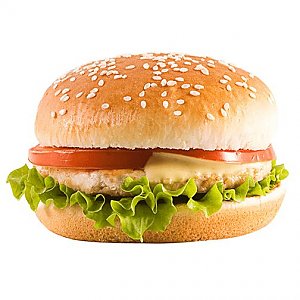The cost of pork production this year may increase by 23%
This year, the cost of production of 1 kg of pork in RUSSIA may rise to 100-105 rubles. In 2019, it averaged 65 rubles / kg, by the end of 2021 - 85 rubles / kg due to a sharp increase in grain prices. Yury Kovalev, General DIRECTOR of the National Union of Pig Breeders, spoke about this at the industry conference ProMeat Industry 2022 in Belgorod, Interfax reports. According to him, this year the dynamics is connected with the rise in prices of all foreign exchange components of production and grain. At the same time, despite external factors, pork production will grow by 5% in the next two years.
It is still very difficult to assess how the current problems will affect the pig industry, says Kovalev. According to him, this will depend on the growth of prime cost, how it will affect final prices, on the purchasing power of the population, etc. prices. But it can also be the other way around: a reduction in jobs and incomes, prices will not grow or even begin to fall, since the supply in this case will exceed the real effective demand. Now it is booming, so it is difficult to predict, ”commented Kovalev.
The departure of inefficient players will be inevitable if prices remain at the current level, says the HEAD of the National MEAT Association, Sergei Yushin. However, the share of such market participants is constantly decreasing, and now there are relatively few of them. “But there are companies that may not be so efficient in terms of production indicators, but they do not have a large credit burden <...>, and their financial position can be called relatively stable. There are also effective players, but if they have a large credit burden, then if the price does not change compared to the cost price dynamics, it will be difficult for them to service loans in a timely manner and in full, ”says Yushin. That is, in a situation of price stagnation, both categories of enterprises may suffer, he believes.
Now Russian companies around the clock are solving dozens of problems that they have not encountered before: timely receipt of money from counterparties from abroad, and the transition to full prepayment requires significant additional financial resources, Yushin continues. In addition, logistics does not work like clockwork, therefore, delivery times are disrupted. According to Kovalev, the industry's dependence on supplies from abroad of components for feed, veterinary drugs, packaging, etc. is not critical, but this does not mean that there are no imports at all. The shock of the first weeks after the imposition of sanctions is already passing, and shipments to Russia are recovering, he adds.
However, imported ingredients have risen in price, which is one of the reasons for the increase in cost, delivery times have also increased, and suppliers almost always require prepayment, Kovalev continues. “All this requires a significant, multiple increase in working capital for our enterprises, and this is the main problem today. We are counting on assistance from the state: the provision of preferential short-term loans should continue to increase,” he emphasizes.
Спрос на свинину будет под влиянием двух факторов — отрицательного и положительного, говорит Юшин. Так, располагаемые доходы населения будут снижаться, и из-за этого общее потребление мяса может упасть примерно на 4-6%. Однако в условиях уменьшения доходов на первое место выходит вопрос энергетической ценности еды, а не получаемого от нее удовольствия, поэтому люди могут перейти с потребления одних видов продуктов (салаты, рыба, фрукты, овощи и др.) на более доступное и сытное мясо. «Салатом семью не накормить <...>. Хотя пока делать какие-либо прогнозы сложно, но курица, безусловно, выиграет — это самый доступный белок», — считает он.
The most important thing now is to make every effort, including in terms of providing the necessary volume of preferential working loans to farmers, in order to meet the demand, which will shift from more expensive types of meat to more affordable ones - broiler meat, pork. They are relatively inexpensive, but at the same time outperform a number of products in terms of consumer and nutritional properties, Yushin notes.
“In addition to those soft loans for the agro-industrial complex that we have now, we need about 75 billion rubles more. <...>. Preferential investment loans are also needed to complete projects, especially those that are already 30-50% ready. If we do not complete them, then we will not only receive less resources, but also lose money, - Yushin emphasizes. - Therefore, a big request to the financial and economic bloc of the government: feel these things. In the second half of the year, the situation on the global food market may be close to dramatic, and we need to isolate Russia from the almost inevitable global food problems. This can only be done by supporting the agro-industrial complex," Yushin concluded.

